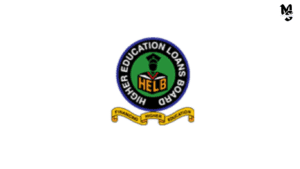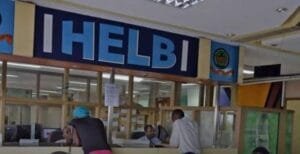Moi University Faces Challenges: Condom Shortage, Strikes, and HELB Loan Issues

Photo by charlesdeluvio on Unsplash

Introduction
Moi University, one of the premier institutions for higher education in Kenya, is currently grappling with a series of pressing challenges that are affecting its student populace. Amid the excitement of a new semester, the university is facing an acute shortage of condoms, which raises significant concerns regarding the health and well-being of its students, particularly the freshers who are transitioning into university life. This shortage not only impacts access to safe sexual practices but also underscores the importance of comprehensive sexual education within the university environment.
The situation is compounded by the ongoing lecturers’ strike, which highlights broader issues within the education sector in Kenya, including the governmental support for higher education institutions. As the strike progresses, the learning experience of students at Moi University is severely disrupted, leading to frustrations among comrades under struggle. The combination of these challenges creates an environment of uncertainty and anxiety for many students, who now face not only academic disruption but also concerns related to their health and safety.
Furthermore, the implications of the current HELB loan cancellation discussions resonate deeply within the university community, as many students rely on these funds to support their educational journeys. The government’s role in higher education is under scrutiny, as the ongoing issues raise questions about the adequacy of support provided to institutions like Moi University in addressing both educational and health-related challenges. As students navigate these turbulent times, understanding the interconnectedness of these issues becomes vital in addressing their concerns and ensuring a conducive learning atmosphere in the future.
The Condom Shortage: A Growing Concern
The condom shortage at Moi University has emerged as a pressing issue, attracting considerable attention from students and university administration alike. The causes of this shortage can be multifaceted. Factors such as supply chain disruptions, increased demand, and changing attitudes towards sexual health all contribute to the ongoing challenge. As a result, the university has issued a plea urging students to consider abstaining from sexual activities until the situation improves. This request highlights not only the immediate health implications but also the broader social environment on campus.
The implications of such a shortage extend beyond mere inconvenience; they directly affect students’ well-being and safety. In an era where the importance of sexual health and education is being emphasized, the lack of accessible contraceptives can lead to increased risks of sexually transmitted infections (STIs) and unintended pregnancies. This scenario poses a significant challenge, especially for a population of young adults who are at a stage of exploring their sexuality. Educational institutions like Moi University play a crucial role in promoting responsible sexual behavior, and the condom shortage may hinder these initiatives.
Additionally, the current situation may also create a breeding ground for tensions among the student body. Comrades under struggle can emerge as individuals feel the pressure of inadequate resources. As the university navigates this crisis, it must ensure that the community remains informed about the importance of sexual health, even in the absence of adequate supplies. Addressing these challenges proactively is essential for fostering a safe and supportive environment, allowing students to focus on their education and overall personal development in a health-conscious manner.
Engaging in Meaningful Activities
In light of the recent challenges faced by Moi University and the need for students to adapt to these circumstances, the university has emphasized the importance of engaging in meaningful activities. This concept not only aims to promote personal growth and academic focus but also fosters a sense of community among students. Meaningful activities encompass a range of initiatives from academic clubs, sports, cultural events, to community service projects, emphasizing collaborative effort and shared experiences.
One way to encourage student participation is through academic clubs that focus on various fields of study. These clubs offer students the opportunity to delve deeper into their disciplines, engage in discussions with peers, and collaborate on projects that enhance their learning experience. This collaboration can help students navigate the disruptions caused by strikes and delays in accessing the HELB loan, as they may find alternative resources through their network of comrades under struggle.
Additionally, students can partake in sporting activities, which serve as an excellent outlet for physical well-being and team spirit. Sports not only promote health but also develop essential soft skills such as leadership, communication, and teamwork. Cultural events organized by the university can serve to enrich the academic calendar, allowing students to explore different heritages and create connections beyond their academic pursuits.
Volunteering for community service initiatives is another meaningful activity that can significantly impact both personal growth and societal development. Involving oneself in the community encourages empathy and social responsibility, allowing students to contribute positively while enhancing their résumés and practical experience. Thus, in this period where education trends in Kenya are shifting, students at Moi University can transform their challenges into opportunities for engagement and meaningful personal development.
The Lecturers’ Strike: Impacts on Education
The ongoing lecturers’ strike at Moi University represents a critical juncture in the landscape of higher education in Kenya. Initiated as a response to unresolved disputes surrounding salary increments and improved working conditions, this strike has quickly escalated, impacting both current students and the broader education trends in Kenya. Faculty members have expressed that inadequate compensation and dwindling resources must be addressed to ensure they can adequately support their students, including the upcoming cohorts of freshmen who are particularly vulnerable to the disruptions.
The consequences of this strike are multifaceted. Classes have been suspended, leaving students in a state of uncertainty and anxiety regarding their academic progression. The psychological impact is particularly pronounced for freshmen, who are navigating the challenges of university life and may be feeling the weight of increased pressure due to the disruptions and their unfamiliarity with the higher education system. These students depend on regular interaction with lecturers to help them adapt to the rigors of campus life, and the absence of this guidance exacerbates feelings of isolation and stress.
Moreover, the repercussions extend beyond academic performance; the morale of students is significantly affected. Many students have expressed frustration at the situation, worrying about the potential delay in their education and the implications this might have for their future, especially with respect to their reliance on the HELB loan system for financial support. The ongoing strike serves as a poignant reminder of the necessary relationship between the government and higher education institutions like Moi University. It underscores the pressing need for dialogues between all stakeholders to address these ongoing issues and to work towards a sustainable solution. Without addressing these concerns, the challenges faced by comrades under struggle will only intensify.
HELB Loan Cancellation: A Critical Update
The Higher Education Loans Board (HELB) has become a pivotal support system for students pursuing higher education in Kenya, including those at Moi University. However, recent developments concerning HELB loan cancellations have raised serious concerns among students, particularly due to issues of misclassification into incorrect bands. Many students have reported being placed in a category that does not accurately reflect their financial needs, resulting in the unanticipated cancellation of their loans. This misalignment presents a significant obstacle for students striving to secure the necessary funds to complete their education.
The ramifications of these cancellations are profound, impacting both the academic journey and the financial stability of students under struggle. For many, the HELB loans are essential for covering tuition fees, accommodation, and other living expenses. The failure to access these funds can lead to increased pressure, affecting not only individual students but also the overall educational environment at institutions like Moi University. Such financial stress can often result in reduced academic performance, higher dropout rates, and profound implications for the student’s future.
Furthermore, the issue of HELB loan cancellations has prompted calls for greater scrutiny of the processes involved in assessing students for financial assistance. The government and higher education stakeholders must address the anomalies to ensure that deserving students are placed in the correct bands reflective of their circumstances. In an educational landscape that is already challenged by various issues, such as strikes and shortages of essential resources, the stability provided by financial aid becomes even more crucial. As education trends in Kenya continue to evolve, ensuring equitable support systems like HELB is essential in fostering an environment where students can focus on their academic pursuits without undue financial burden.
In conclusion, the recent controversies surrounding HELB loan cancellations highlight the urgency for reforms to protect the interests of students. It is essential for the government and relevant authorities to actively seek solutions that address these issues, ensuring that the future of education in Kenya remains accessible and equitable for all students, including those at Moi University.
Student Reactions: Voices from the Campus
The recent challenges facing Moi University, particularly the condom shortage, ongoing lecturers’ strike, and issues surrounding the HELB loan cancellation, have provoked a diverse range of reactions from the student body. As a significant institution for higher education in Kenya, the impact of these issues has been profound, prompting students to articulate their views through various platforms on campus.
Several students expressed deep concern regarding the condom shortage, emphasizing its implications on sexual health and safety. The scarcity has left many students feeling vulnerable and anxious, as they navigate personal relationships in an environment where access to essential health products is crucial. One student noted, “It’s alarming that a university environment, which should prioritize our health, is facing such a shortage. We need more support from the administration in providing safe sex resources.” This sentiment resonates with many comrades under struggle, highlighting the urgency of addressing health-related challenges in educational institutions.
The lecturers’ strike has further amplified students’ feelings of frustration and helplessness. Students articulated that the strike has disrupted their learning experience, leading to uncertainty about graduation timelines and academic progression. A second-year student remarked, “We understand the lecturers are fighting for their rights, but we too are caught in the middle. Our education doesn’t stop just because negotiations are ongoing.” This perspective reflects a common theme among students, who acknowledge the importance of fair working conditions for staff while simultaneously advocating for their right to quality education.
In addition to these issues, the government’s approach to higher education financing, particularly regarding HELB loan cancellations, has left many students anxious. With rising tuition fees and living costs, students are increasingly reliant on loans. A frustrated third-year student expressed, “The cancellation of HELB loans feels like a setback for many of us who depend on this support. We urge the government to reconsider their approach and recognize the financial burden on students.” Such opinions underline the critical intersection between government policies and students’ experiences in the higher education landscape in Kenya.
University Administration’s Response
The administration of Moi University has faced numerous challenges in recent times, particularly surrounding issues such as condom shortages, strikes among the faculty, and complexities related to HELB loan cancellation. The response strategy implemented by the administration aims to create a balanced approach in addressing these pressing concerns while ensuring the continuity of higher education and student welfare on campus.
In light of the condom shortage, the university administration has taken proactive measures to replenish supplies on campus. Collaborations with health organizations aim to facilitate the distribution of condoms in student health centers. The administration has also engaged in educational campaigns to promote safe sexual practices among students, thus addressing both the logistical issue and the broader implications for student health and wellness. This dual approach seeks to mitigate the impact of the shortage while fostering a culture of responsibility among students.
Regarding the lecturers’ strikes, which have often emerged amid negotiations over salary increases and improved working conditions, the university’s administration has initiated dialogue with faculty members through various committees. The emphasis lies on establishing a more transparent communication channel concerning lecturers’ demands, thus aiming to reduce misunderstandings and promote a cooperative atmosphere. Faculty members have expressed a desire for more consistent updates and involvement in decision-making processes related to their welfare, which the administration acknowledges as a vital aspect of governance.
Furthermore, with the rising challenges posed by the HELB loan cancellation, the university is advocating for students’ needs. The administration is actively engaging government stakeholders to address these financial constraints affecting many students. By amplifying students’ voices within government and higher education discussions, the administration is working to ensure that their concerns are acknowledged and addressed. The effectiveness of these communication efforts remains under assessment, as students and faculty expectations are continuously evolving amidst the shifting education trends in Kenya.
Importance of Advocacy and Support Networks
The current environment faced by students at Moi University illustrates the necessity of advocacy and support networks in addressing pressing issues such as condom shortages, strikes, and the ongoing challenges surrounding HELB loan cancellation. Effective advocacy not only amplifies student voices but also brings attention to the necessary reforms within the higher education sector in Kenya. These networks foster collaboration among students, university administration, and governmental bodies to create a conducive learning atmosphere.
At Moi University, several initiatives exist to bolster student support in these trying times. The student body organizations play a crucial role in voicing concerns and advocating for changes that directly affect student life. Such organizations often engage in dialogue with university management to address issues like resource availability and academic disruptions caused by strikes. Furthermore, these advocacy efforts are essential for negotiating with the government to ensure consistent funding and support for higher education institutions, ultimately benefiting all students.
Additionally, Moi University’s counseling services provide essential emotional and psychological support to students who may be struggling with the adverse effects of educational disruptions. Programs focusing on mental health awareness are vital in fostering resilience among those affected by issues such as sudden strikes or financial stressors stemming from HELB loan challenges. Peer support networks also enable students to connect with one another, sharing experiences and resources while advocating for collective action. These networks create a sense of community, empowering students to stand together as comrades under struggle.
As education trends in Kenya evolve, it is critical for students to actively participate in these support initiatives. By engaging with advocacy programs, students can ensure that their needs are addressed and that they are not alone in navigating the complexities of their higher education journey. In conclusion, the importance of advocacy and support networks at Moi University cannot be overstated; they are essential in resolving the challenges currently faced by students and fostering a stronger academic community.
Conclusion: Navigating Through Campus Challenges
The situation at Moi University encapsulates a myriad of struggles that students currently face, including condom shortages, strikes, and challenges surrounding the HELB loan cancellation. These intertwined issues reflect the broader education trends in Kenya, highlighting the pressing necessity for sustained government support in higher education. The dynamics at play within Moi University serve as a microcosm of the ongoing battles faced not just by its comrades under struggle but by students across the country experiencing similar hardships.
Resilience is paramount as students navigate these challenges. The shortage of essential health resources like condoms poses risks to student health and well-being, while the frequency of strikes illuminates the pressing grievances that cannot be overlooked. Moreover, the implications of HELB loan cancellation resonate deeply, as a lack of financial support can hinder students’ access to education and their future prospects. It is crucial for stakeholders, including the university administration and government bodies, to engage constructively in addressing these issues. Only through collaboration and dialogue can sustainable solutions be achieved.
Encouraging a culture of open conversation among students can foster community support, easing the burden that many may feel. By engaging in discussions about these critical issues, students can build solidarity and advocate for change within their educational institutions. The role of the student body in voicing concerns and proposing solutions cannot be understated, as collective action often leads to meaningful outcomes. In conclusion, it is important for comrades under struggle at Moi University and beyond to recognize their strength in unity. Together, they can strive towards a future where higher education is accessible, equitable, and supportive.







